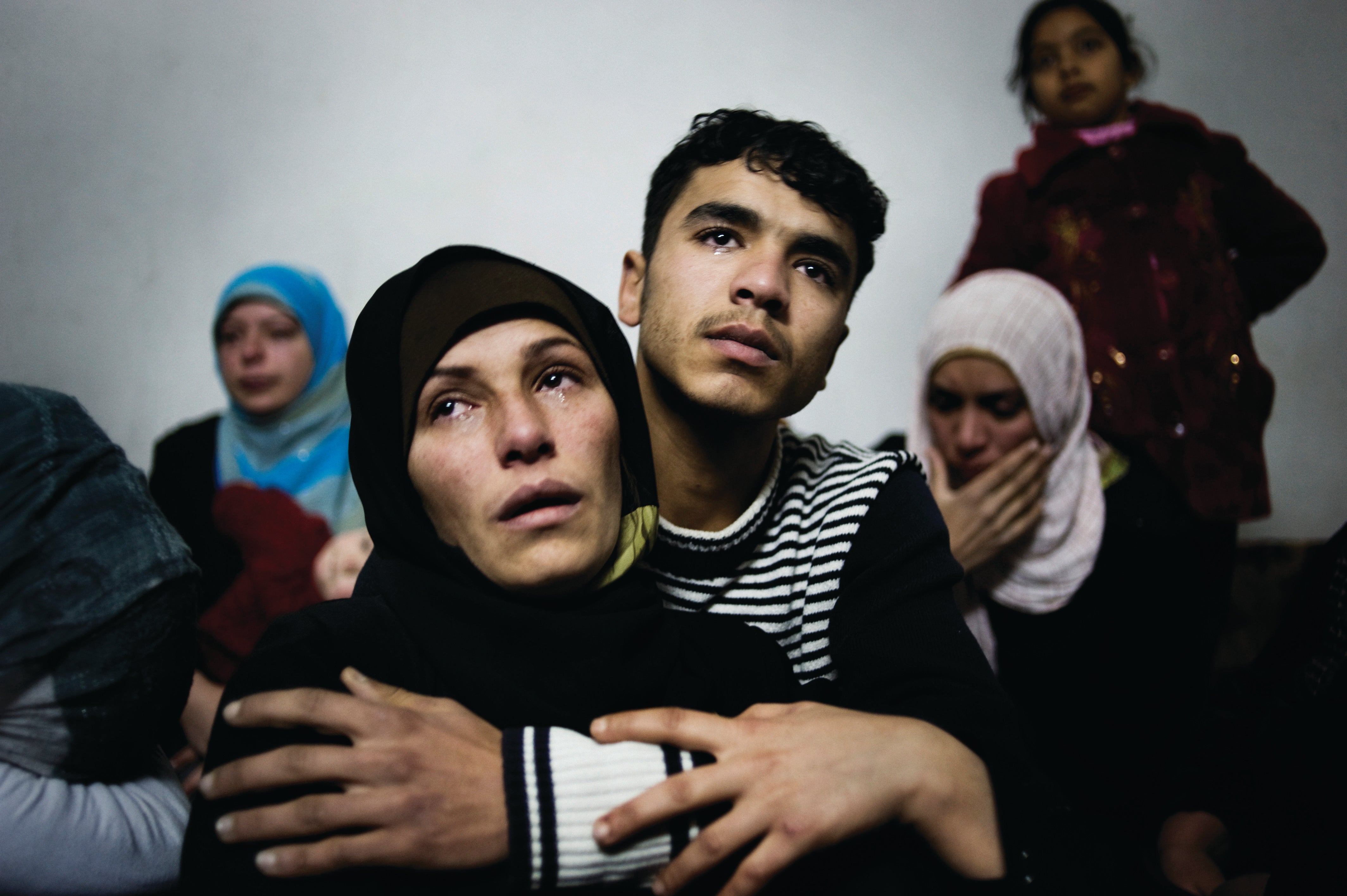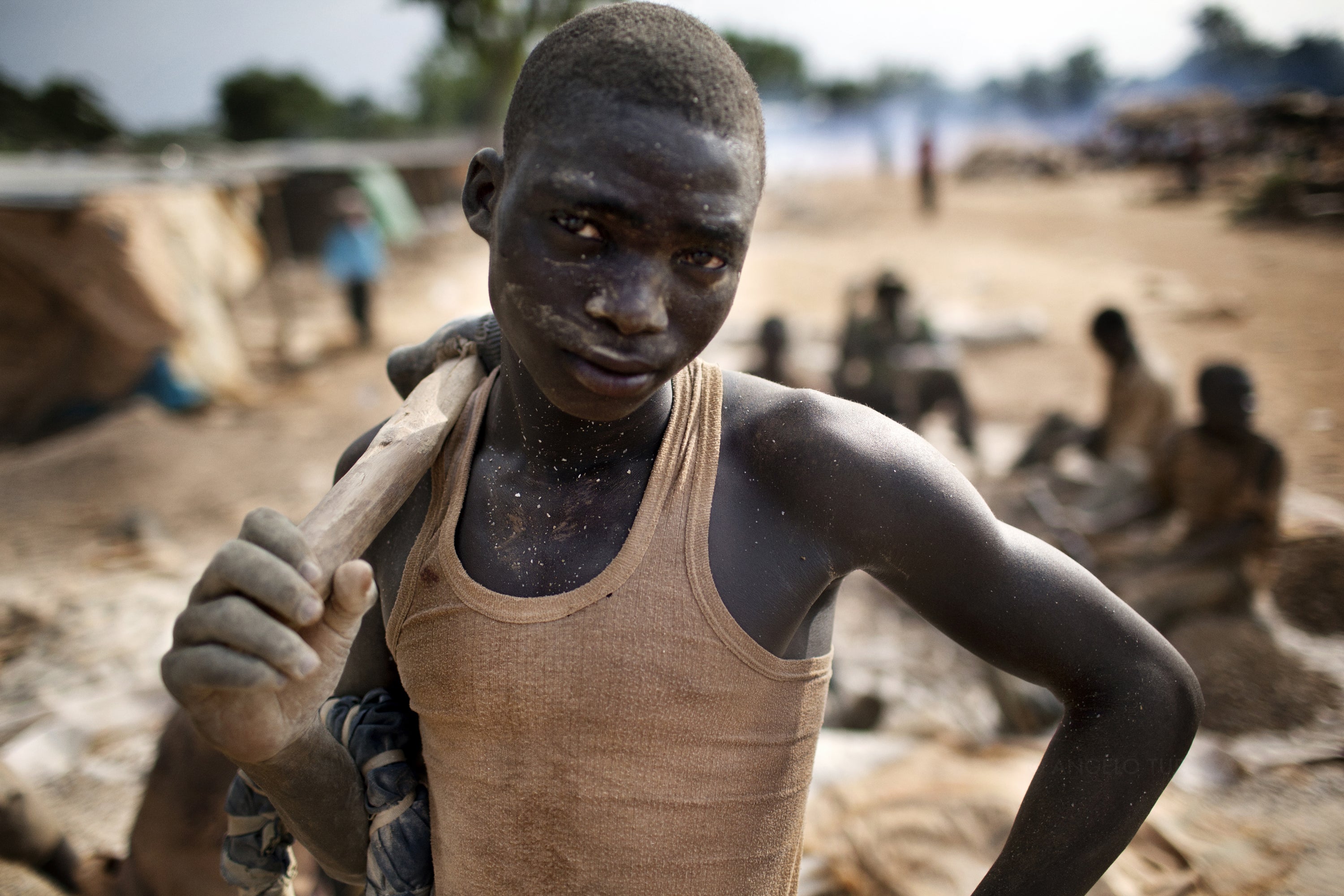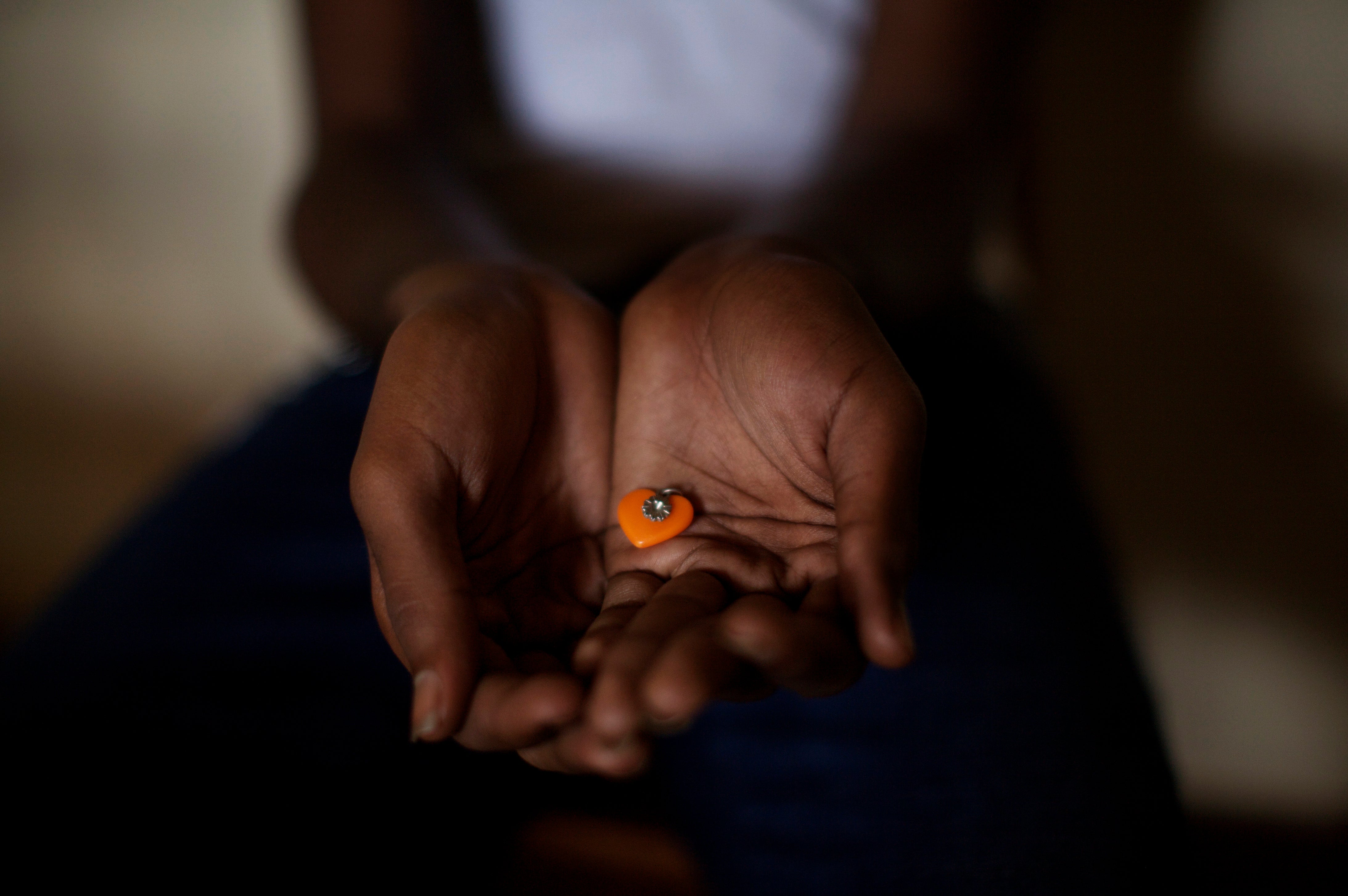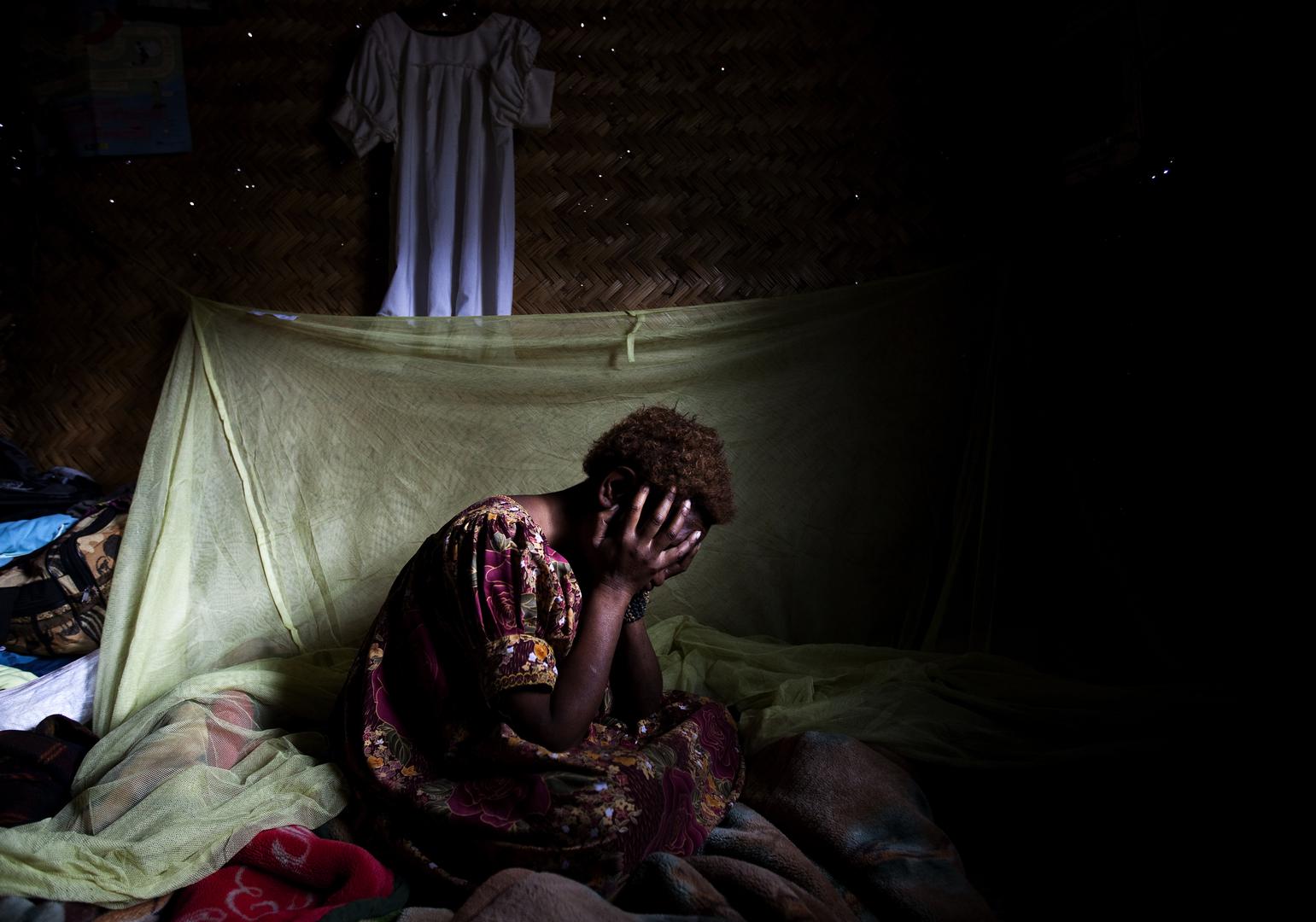Serious violations of international human rights and humanitarian law continued in 2012 in Israel and in the West Bank and Gaza. Renewed armed conflict between Israel and Hamas and armed groups in Gaza from November 14-21 involved unlawful attacks on civilians by both sides. At least 103 Palestinian civilians and 4 Israeli civilians died during the fighting, which ended after a ceasefire brokered by Egypt and the United States. Israeli forces killed at least four Palestinian civilians during the year off Gaza’s coast and in the “no-go” zone on the Gaza side of the boundary fence. Israeli authorities destroyed homes and other property under discriminatory practices, forcibly displacing Palestinian residents of the West Bank, as well as Bedouin citizens of Israel.
In the West Bank, including East Jerusalem, Israeli settlers injured 151 Palestinians as of November 27. Israel imposed severe restrictions on Palestinians’ right to freedom of movement, continued to build unlawful settlements in occupied territory, and arbitrarily detained Palestinians, including children and peaceful protesters.
Israel, operating in conjunction with Egypt, has impeded the rebuilding of Gaza’s devastated economy by blocking virtually all exports from Gaza. Israel has also barred Gaza residents from traveling to the West Bank. Israel’s use of lethal force against Palestinians close to Israel’s border with Gaza deprived them of access to 35 percent of Gaza’s farmland and 85 percent of its fishing waters. As part of the cease-fire agreement ending November’s hostilities, Israel and Hamas were to negotiate reductions in these restrictions, which remained unclear at this writing.
Hamas authorities in Gaza carried out six judicial executions in 2012, including after unfair trials, and men whom witnesses said were members of Hamas’s armed wing claimed responsibility for seven extrajudicial executions in November. The authorities frequently denied detainees access to their lawyers. Security forces conducted arbitrary arrests and tortured detainees. The authorities permitted some local human rights organizations to operate, but suppressed political dissent, free association, and peaceful assembly. Palestinian armed groups in Gaza launched more than 1,400 rockets that struck inside Israel as of November 2012, killing three civilians; a mortar shell killed a fourth civilian. The vast majority of rockets were launched indiscriminately towards populated areas.
In the West Bank, Palestinian Authority (PA) security services beat peaceful demonstrators, detained and harassed journalists and online activists, and arbitrarily detained hundreds, including during waves of arrests in May and September. Credible allegations of torture committed by the PA's security services increased.
Gaza Strip
Israel
Israel Defense Forces (IDF) conducted aerial and artillery attacks in Gaza, including in response to rocket attacks on population centers in Israel by Palestinian armed groups. They also fatally shot at least five Palestinian civilians in the “no-go” zone inside Gaza's northern and eastern borders, as of November, according to the Israeli rights group B’Tselem.
In July, Israel amended the law governing the state’s civil liability for wrongdoing to bar all compensation lawsuits against Israeli forces by Palestinians from Gaza. Palestinians from Gaza with ongoing cases were barred from traveling to Israeli courts to testify.
In August, a military court accepted a soldier’s plea bargain and sentenced him to 45 days in prison for shooting his weapon without authorization in January 2009. The charge was reduced from manslaughter for killing a mother and daughter on the basis of discrepancies between soldiers’ and Palestinian witnesses’ accounts. The military investigation failed to re-interview witnesses to reconcile the accounts. The soldier was the fourth to be convicted of wrongdoing during Operation Cast Lead, and the second to serve prison time, despite many other cases of unlawful harm to civilians and civilian property.
Hamas prosecuted no one for unlawful attacks against Israeli civilians during the 2008-2009 conflict, or since.
In August, an Israeli civil court rejected a claim for damages by the family of Rachel Corrie, an American who was fatally crushed by an IDF armored bulldozer in Gaza in 2003 while attempting to prevent it from demolishing a home. The judge held that the military investigation into Corrie’s death “did not have any faults,” and that Israel was immune from liability because Corrie’s death occurred during a “combat operation.”
Blockade
Israel's punitive closure of the Gaza Strip, particularly the near-total blocking of exports from Gaza, continued to have severe consequences for the civilian population. Egypt also blocked all regular movement of goods at the crossing it controls. The World Bank reported that the “the severity of poverty has increased” among impoverished Gazans. More than 70 percent of Gaza’s population receives humanitarian assistance.
Israel and Egypt allowed imports to Gaza that amounted to less than half of pre-closure levels, the United Nations reported, including construction materials for projects undertaken by international organizations. As of September, Gaza still had an estimated shortage of some 250 schools. In a ceasefire agreement with Hamas, announced on November 21, Israel agreed to negotiate via an Egyptian intermediary, “opening the [Gaza] crossings and facilitating the movement of people and transfer of goods.”
Egypt, for its part, continued to ease restrictions on the movement of Palestinians at the Rafah crossing between Gaza and Egypt’s Sinai. But as of November 2012, it still did not permit regular imports or exports of goods through Rafah, although it tended to turn a blind eye to commerce through an extensive network of tunnels.
“No-Go” Zone
Israeli forces continued to impose a “no-go” zone on lands within 500 meters inside Gaza from the armistice line with Israel by regularly firing on any Gazan in the vicinity; areas up to 1.5 kilometers from the Israeli perimeter fence were considered “high-risk” due to shootings by Israeli forces. As of November 4, 2012, Israeli forces had killed five Palestinian civilians and wounded dozens of civilians in these zones, which comprise 35 percent of Gaza's agricultural land, according to the UN.
Israeli forces also fired on and confiscated Palestinian fishing boats that sailed more than 3 nautical miles from the coast, prohibiting access to 85 percent of Gaza's maritime area under international law. The Palestinian Center for Human Rights documented 49 attacks against Palestinian fishermen as of June 30. On September 27, Israeli forces killed a fisherman and wounded his brother as they were pulling in their nets a few meters from shore, near Gaza’s northern boundary.
In the November 21 ceasefire agreement, Israel agreed to refrain from restricting Palestinians’ internal freedom of movement and “targeting residents in border areas.”
Hamas and Palestinian Armed Groups
Hamas and Palestinian armed groups launched more than 1,800 rockets toward Israeli population centers in 2012 as of November 21, compared with 293 rockets in 2011. Israel’s anti-rocket system shot down at least 400 rockets headed towards Israeli population centers. A rocket that hit a residential building in Kiryat Malachi on November 15 killed three Israeli civilians. A mortar fired from Gaza on November 20 killed a civilian in the Bedouin village of Rejwan in Israel.
Rocket attacks from Gaza seriously wounded at least four Israeli civilians in March and November. A bus bombing in Tel Aviv on November 21 injured more than 20 civilians, one seriously; no group has taken responsibility for the attack.
The Hamas Ministry of Interior carried out six judicial death sentences. On July 17, Hamas executed by hanging Na’el Doghmosh following his conviction for murder. The appeals court increased his sentence from life imprisonment to death, in violation of Palestinian law, and did not address allegations that security forces had tortured him. Courts in Gaza have repeatedly accepted coerced confessions as evidence of guilt in other capital cases.
In November, Hamas’s armed wing extrajudicially executed seven men for allegedly collaborating with Israel. At least six of them had been sentenced to death, but were appealing their sentences when armed men took them from a detention center and killed them.
The internal security agency and Hamas police tortured or ill-treated 121 people as of October 31, according to complaints received by the Independent Commission for Human Rights (ICHR), a Palestinian rights body. The ICHR received 102 such complaints in all of 2011.
Hamas security forces assaulted, arbitrarily detained, and allegedly tortured civil society activists and peaceful protesters who had called for an end to the political split between Hamas and its rival, Fatah.
Hamas continued to ban three newspapers from Gaza printed in the West Bank.
Hamas security forces destroyed scores of homes, leaving hundreds of people homeless, without due process and with inadequate or no compensation, and in some cases using excessive force against protesters. In February, the Israel Land Administration demolished dozens of homes to widen a road in the Izbet Hamamiya neighborhood. In July, it evicted 132 families from the al-Rimal neighborhood, claiming that the homes were built illegally on “state land.” A court appeal was pending at the time of the demolitions.
West Bank
Israel
The IDF in the West Bank killed at least two Palestinian civilians in circumstances that suggest the killings may have been unlawful. In July, Israeli forces at the al-Zayim checkpoint near East Jerusalem shot at a vehicle attempting to take Palestinian workers without permits to their jobs inside Israel, killing the driver as he attempted to flee the checkpoint, B’Tselem reported. In November, Israeli forces fatally shot Rashdi Tamimi, 31, with rubber bullets and one round of live ammunition at a close distance during a demonstration in Nabi Saleh village.
Israeli authorities took inadequate action against Israeli settlers who injured Palestinians and destroyed or damaged Palestinian mosques, homes, olive trees, cars, and other property. As of September 31, the UN reported 247 such attacks in 2012. In a positive step, police promptly arrested Israeli suspects in two high-profile cases, including a firebomb attack on a Palestinian taxi that burned six people, including five members of one family, and the severe beating of a Palestinian youth.
Settlement Building and Discriminatory Home Demolitions
In June 2012, Israeli media reported that the number of settlers had increased by 15,579 in the previous 12 months. In April, the government officially “authorized” three previously unrecognized settlements. In July, a committee established by Prime Minister Binyamin Netanyahu concluded that Israel is not an occupying power in the West Bank and settlements do not violate international law, an opinion not shared by the International Court of Justice (ICJ) or any other government.
As of November 27, Israeli authorities had demolished 568 Palestinian homes and other buildings in the West Bank (including East Jerusalem), displacing 1,014 people.
Building permits are difficult or impossible for Palestinians to obtain in East Jerusalem or in the 60 percent of the West Bank under exclusive Israeli control (Area C), whereas a separate planning process readily granted settlers new construction permits. Israel approved donor-funded construction of 14 schools and 5 clinics for Palestinians in Area C, but threatened entire Palestinian communities with demolition, such as 8 villages in an area designated as a military training zone.
Settlers continued to take over Palestinian homes in East Jerusalem, based in part on discriminatory laws that recognize Jewish ownership claims there from before 1948, but bar Palestinian ownership claims from that period in West Jerusalem.
Freedom of Movement
Israel maintained onerous restrictions on the movement of Palestinians in the West Bank, including checkpoints, closure obstacles, and the separation barrier. Settlement-related movement restrictions forced around 190,000 Palestinians to take time-consuming detours rather than the most direct route to nearby cities, the UN reported.
Israel continued construction of the separation barrier around East Jerusalem. Some 85 percent of the barrier's route falls within the West Bank, isolating 11,000 Palestinians who are barred from traveling to Israel and who must cross the barrier to access livelihoods and services in the West Bank, and separated Palestinian farmers and landowners in 150 communities from their lands, the UN reported.
Arbitrary Detention and Detention of Children
Israeli military authorities detained Palestinians who advocated non-violent protest against Israeli settlements and the route of the separation barrier. In May, an Israeli military court sentenced Palestinian activist Bassem Tamimi to 13 months in prison for leading demonstrations against land confiscation, in violation of his right to peaceful assembly, and for urging children to throw stones. The conviction on the latter charge was based primarily on a child's coerced statement.
Israeli authorities continued to arrest children suspected of criminal offenses, usually stone-throwing, in their homes at night, at gunpoint, question them without a family member or a lawyer present, and coerce them to sign confessions in Hebrew, which they did not understand.
Israel allowed detainees from Gaza to have family visits, which it had suspended in 2007. As of October 31 Israel held 156 Palestinian administrative detainees without charge or trial on the basis of secret evidence.
Palestinian Authority
Complaints of torture and ill-treatment by West Bank PA security services increased compared to the same period last year, with the ICHR reporting 142 complaints as of October 31, as opposed to 112 complaints for all of 2011. In May and September, PA security services arbitrarily arrested scores of men without charge in the Jenin, Nablus, and Tubas governorates, and allegedly tortured dozens on suspicion of support for Hamas or attacks against the PA. In some cases, PA military courts continued to exercise jurisdiction over civilians.
The PA security services, and men in civilian clothes identified as security employees, violently dispersed peaceful protests, and assaulted and arbitrarily detained protesters and journalists. In several cases, security officials arrested and abused Palestinians who had posted criticisms of the PA online, including on their Facebook pages.
Palestinian courts in the West Bank have not found any security officers responsible for torture, arbitrary detention, or prior cases of unlawful deaths in custody. The PA did not publish any information indicating that it took disciplinary measures against or prosecuted individual officers whom witnesses and a government-commissioned report identified as responsible for brutally beating demonstrators and journalists in Ramallah’s main square on June 30 and July 1.
Palestinian civilians injured 43 settlers in the West Bank as of November 27, the UN reported.
Israel
Bedouin citizens of Israel who live in “unrecognized” villages suffered discriminatory home demolitions on the basis that their homes were built illegally. Israeli authorities refused to prepare plans for the communities and to approve construction permits, and rejected plans submitted by the communities themselves, but have retroactively legalized Jewish-owned private farms and planned new Jewish communities in the same areas. In 2012, the Israel Land Administration demolished 47 Bedouin structures as of September, , not including tents erected by villagers from al-Arakib, which Israeli authorities have demolished 39 times the Bedouin-rights group Dukium reported.
There are an estimated 200,000 migrant workers in Israel. Most are indebted to recruiting agencies, beholden to a single employer for their livelihood, and unable to change jobs without their employer's consent. Government policies restrict migrant workers from forming families. The Ministry of Interior deports migrants who marry other migrants while in Israel, or who have children there, on the basis that these events indicate an intent to settle permanently in violation of their temporary work visas.
Israel continued to deny asylum seekers who entered the country irregularly from Egypt the right to a fair asylum process. In June, the Ministry of Interior began to implement the “anti-infiltration law,” which provides for the indefinite detention of all border-crossers without access to lawyers, without exception for asylum seekers, and allows the military the discretion to prosecute them for the crime of “infiltration.” Israeli forces repeatedly refused to allow groups of migrants who had reached a newly constructed border fence to enter the country or present asylum claims, and detained and forcibly returned other groups to Egyptian custody without considering their asylum application. Most of the asylum-seekers come from countries other than Egypt—predominately Eritrea and Sudan—but Egypt has not proven a safe or fair venue for adjudicating their claims.
Key International Actors
Israel has been the largest overall recipient of foreign aid from the US since World War II, receiving US$3 billion in military aid in 2012. In 2012, the US provided $100 million in assistance to Palestinian security forces and $396 million in economic support to the PA.
In April 2012, the International Criminal Court (ICC) Office of the Prosecutor closed its consideration of a 2009 Palestinian declaration seeking to accept ICC jurisdiction, stating it did not have the authority to determine whether Palestine was a “state” for the purposes of the ICC treaty.
On November 29, the UN General Assembly voted to recognize Palestine as a non-member observer state. Prior to the vote, Israel and the UK pressured Palestinian leaders not to join the ICC. It is unclear at this writing what effect the observer-state determination will have on the 2009 Palestinian declaration with the ICC.
The EU allocated €300 million (about $390,000,000) to the Palestinian territory for 2012, including €100 million (about $130,000,000) of 2011 credits to be spent in 2012.




